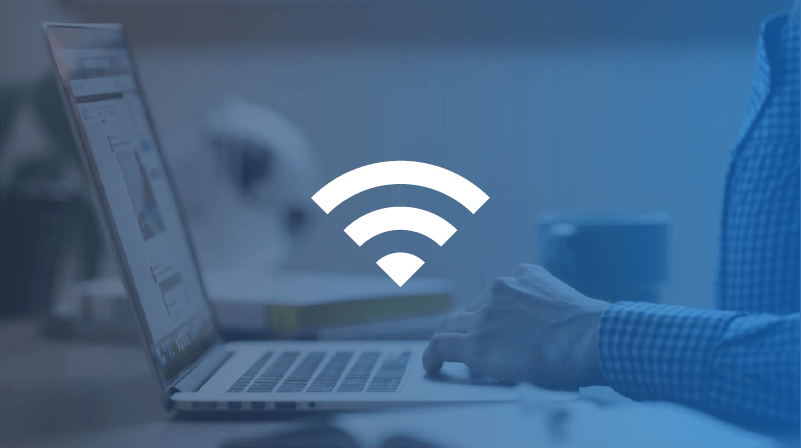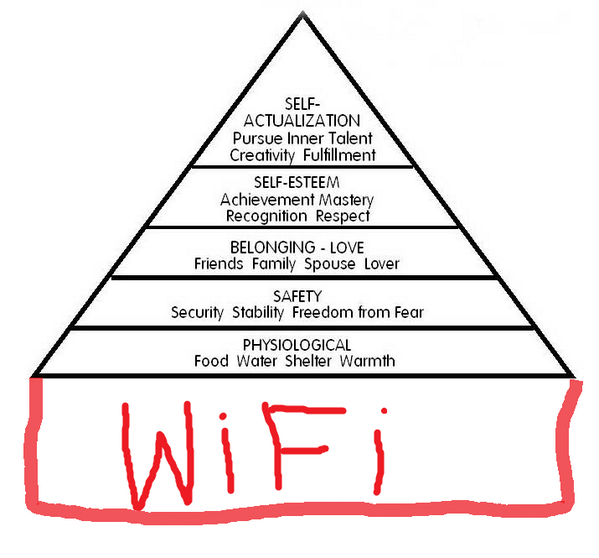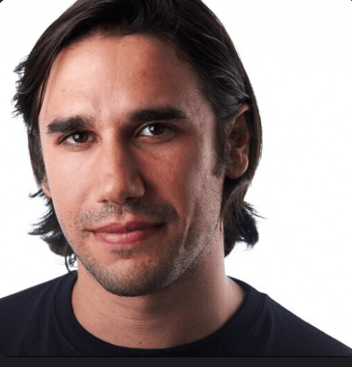Net neutrality: what the US can learn from Europe

If you’re reading this article from your phone, chances are you don’t even know how you’re connected to the server that’s hosting it. It’s easy enough to check — just search for the Wi-Fi or 4G icon at the top of your screen — but you’re probably not even thinking about it.
Back in the day, logging on to the internet was a hassle. Before being able to do anything, you would have to dial a number, wait a couple of minutes and then you could finally start using the web — at home, from your desktop computer. Today it’s a lot simpler — just unlock your phone and you’re connected, wherever you are.
An internet connection has become like running water. When you open the tap, you expect water coming out without having to do anything. The same now goes for being online — we only complain when there’s an error keeping us from our content and services. It’s no wonder that Maslow’s famous pyramid of human needs has been updated to reflect the current day and age.
We’re living in a golden era of internet access — but it’s all about to change. In the United States, FCC chairman Ajit Pai has declared war on a set of rules set in place by former President Barack Obama that were meant to safeguard the future of net neutrality.
After being promoted to chairman in January 2017 by President Trump, Pai has has been working around the clock to try and convince the country and its legislators that less regulation will make for more innovation on the internet. Defenders of net neutrality argue against this, saying that taking away the rules makes it possible for the internet providers to modify access as they please. Instead of treating all internet traffic the same, which is the current situation, they could choose to limit access or throttle bandwidth when trying to access certain websites. Want unlimited, fast video streaming? Just pay $5/month for the Streaming Video Plan!
It’s a dystopian future, and one that only strengthens the position of the internet’s giants like Google, Netflix and Facebook, that will be able to dodge the negative implications because they’re too important for providers to ignore. This isn’t the case for startups and smaller companies, access to which could eventually be throttled, leaving them to fight for attention on the internet’s slow lane. It all goes against the spirit of how the internet was originally meant to be used — a place for everyone to freely share ideas and information.
Luckily, some of the world’s most influential internet companies and its users have been banding together to try and stop the rules from passing. On November 22nd, the Reddit community organized a site-wide protest, lighting up the pages of all subreddits with red banners that protested Pai’s actions. In a letter released on Cyber Monday, the country’s de facto online shopping holiday, companies like Twitter, AirBNB and Tumblr plead against the plans. Even the FCC’s former chairman weighed in, calling Pai’s ideas “hypocritical”.
It’s clear that there’s a strong opposition against scrapping Obama’s net neutrality guidelines, but that doesn’t mean these voices are going to be heard. Meanwhile, across the pond in Europe, a very different wind is blowing.
What Europe is doing differently
Instead of having a battle over how the internet should work for them, European citizens are protected by international guidelines defined by the Union. This is all thanks to legislation that was passed in 2015 and amended in 2016 with extra rules. They define a basic framework that protects net neutrality across all member states, making it impossible for ISPs to throttle or block access to any website. By law, all data traffic has to be treated equally.
As all member states are mostly free to add their own laws on top of European legislation, some countries have adopted even stricter legislation. The Netherlands already enshrined net neutrality back in 2012, enforcing rules that go beyond those of the EU, and the same goes for Slovenia. In general, the EU is doing a great job at protecting consumers from internet providers, making sure that they can’t start messing with access, forcing them to adhere to net neutrality.
There is a grey area, however, which has become a point of discussion over the last few years. Some telecom providers have been testing the limits of the law by offering new products that lets people use certain apps without it counting against their data cap. This so-called zero-rating is a very slippery slope.
At first sight, it seems like a great deal — who doesn’t like free data? But when you look closer, it becomes clear that it’s a potentially harmful change dressed up by the company as a consumer-friendly gift.
Take the Dutch subsidiary of German telecom giant T-Mobile, which introduced a service called ‘Data Free Music’ last year. Most users couldn’t be happier, as they were now able to stream as much as they wanted. There’s one big catch, though — only services that signed up with T-Mobile are available to stream for free. According to the company, any service can sign up without having to pay a fee, but in reality some haven’t done so yet. More than a year after its introduction, SoundCloud, which has over 175 million monthly listeners, is still absent from the program.
After a year-long investigation by the Dutch Consumer and Markets Authority and subsequent trials in court, it was found that the product was allowed under Dutch and EU law. Similar plans have since popped up at providers in the UK and Portugal.
The sudden increase of zero-rating products are seen by some as a first nail on the coffin of net neutrality, but the truth is that they’re all assessed on a case-by-case basis for compliance with the rules. If a company goes too far, it’ll be held back by European law, which in turn is enforced by the European courts.
That’s not the case in the US, however. Under the new rules, the FCC will effectively become responsible the regulation of all American ISPs. The only problem is that they don’t actually have the power to enforce it, which creates a free-for-all that Ajit Pai likes to call “a market-based approach under which the internet has previously already thrived”.
Pai recently presented its plans to the FCC, and voting will take place on December 14th, when they’re almost certain to pass due to a Republican majority in the commission. This makes the future of unlimited access for American internet users very uncertain. While big telecommunications companies like Comcast and Verizon are keeping up the appearance that they won’t do anything bad, they’ve forcefully opposed all legislation aiming to protect net neutrality by spending a whopping $572 million on lobbying since 2008.
After the 14th, the ruling will move to the US Court of Appeals, where it’ll be facing a large number of trials. Where it goes from there is still unclear, but it’s not looking pretty.
About Codacy
Codacy is used by thousands of developers to analyze billions of lines of code every day!
Getting started is easy – and free! Just use your GitHub, Bitbucket or Google account to sign up.
.svg)


